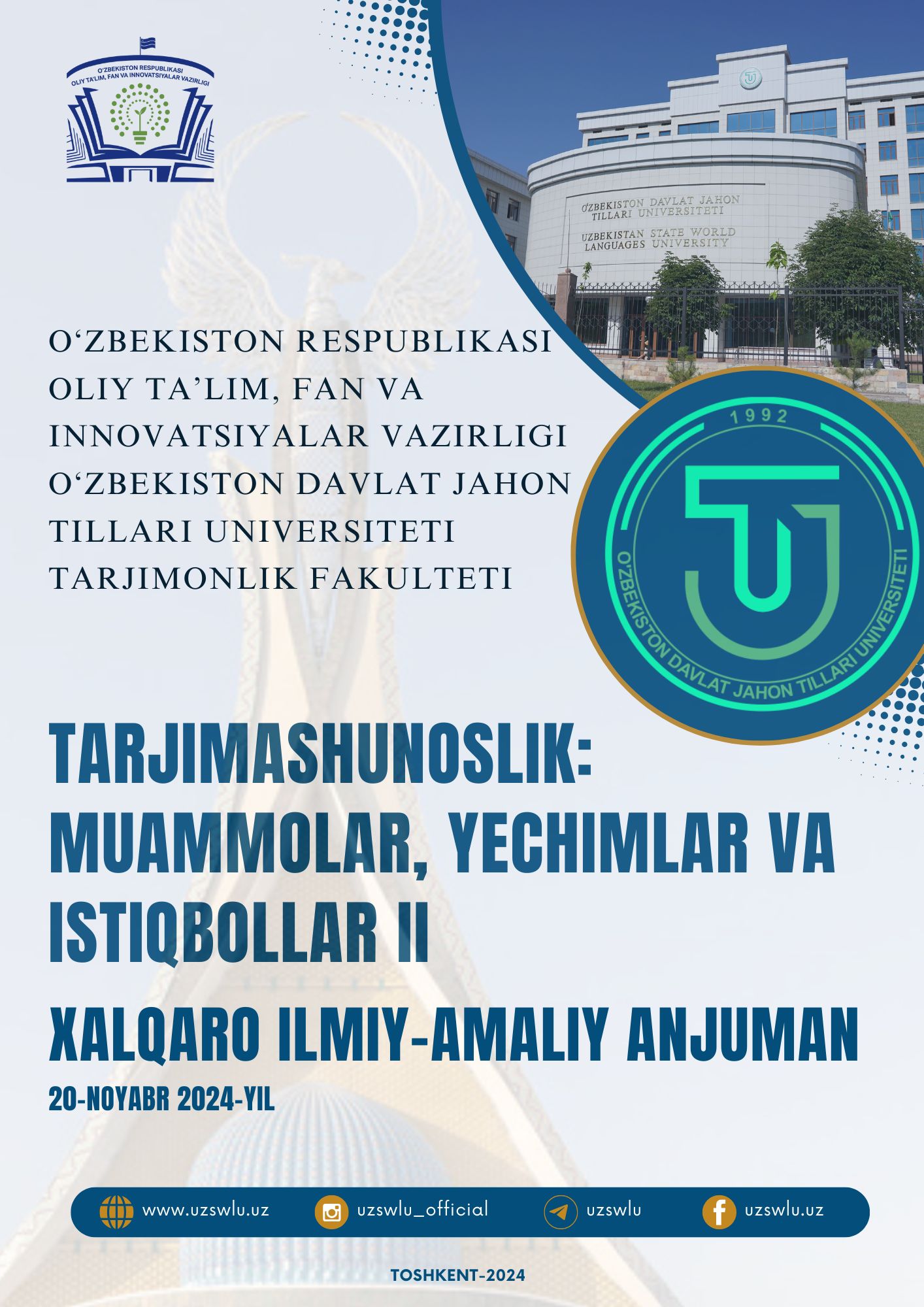ETHNOGRAPHIC RESEARCH IN TRANSLATION AND INTERPRETING STUDIES
Kalit so‘zlar
Ethnographic research, Translation and interpreting studies (TIS), Cultural context, Participant observation, Cross-cultural communication, Identity and agency in translation, Power dynamics, Community interpreting.Annotasiya
This article provides an in-depth exploration of the application of ethnographic research in Translation and Interpreting Studies (TIS), highlighting how these methods bring unique insights into the social, cultural, and professional dimensions of translation and interpreting. Ethnographic research, rooted in anthropology, enables researchers to understand the real-world contexts in which translators and interpreters operate, moving beyond purely linguistic analysis. The article emphasizes the benefits of ethnography, such as gaining a contextualized understanding of translation practices, examining the influence of identity and agency, and uncovering the often invisible aspects of translation work.
Foydalanilgan adabiyotlar ro‘yhati
.
Angelelli, C. V. (2004). "Medical Interpreting and Cross-Cultural Communication". Cambridge University Press.
Bourdieu, P. (1991). "Language and Symbolic Power". Harvard University Press.
Hubscher-Davidson, S., & Liao, M.-H. (2023). "Ethnographic research in translation and interpreting studies." Translation Studies, 16(2), 123-145.
Inghilleri, M. (2005). "The sociology of Bourdieu and the construction of the 'object' in translation and interpreting studies." The Translator, 11(2), 125-145.
Pöchhacker, F. (2004). "Introducing Interpreting Studies". Routledge.
Tymoczko, M. (2007). "Enlarging Translation, Empowering Translators". St. Jerome Publishing.
Venuti, L. (1995). "The Translator's Invisibility: A History of Translation". Routledge.
Wadensjö, C. (1998). "Interpreting as Interaction". Longman.
Wolf, M. (2007). "The emergence of a sociology of translation." In M. Wolf & A. Fukari (Eds.), "Constructing a Sociology of Translation" (pp. 1-36). John Benjamins.

